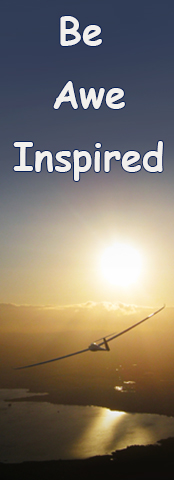Who we are
The Devon and Somerset Gliding Club Ltd (DSGC) is a registered society under the Co-operative and Community Benefit Societies Act 2014, and is wholly owned by its members.
The Club is managed on a volunteer basis under the direction of an annually-elected management committee. It has a lengthy history starting life as Taunton Vale Gliding Club at Dunkeswell Aerodrome, before changing name and then buying some farmland one mile to the west on the edge of the Blackdown Hills, and developing a glider site at North Hill airfield. Our site, North Hill airfield, is designated by Sport England as a gliding National Significant Area for Sport (SASP).
The DSGC is the largest club in the south-west peninsula with good facilities for a non-commercial club, separate from the Club is the DSGC Charitable Trust.
New members are always welcome, whether experienced or new to the sport, and we offer a full range of training from a single trial lesson (if you just want to see what it's all about) through to, summer courses, solo, cross-country flying and badges.
The DSGC is a member of the British Gliding Association (BGA) and operates under the rules and with the authorisation of this national body. The BGA is the governing body for the sport of gliding in the UK, with authority delegated from the Civil Aviation Authority (CAA). The club's instructor team are all BGA-qualified.
We operate all year round on Wednesday, Thursday, weekends and Public Holidays (see the flying schedule for full details of the current activities). Catering facilities are available to members of the public and offer the opportunity to view the airfield activity over a snack or full meal. Members of other gliding clubs with their own gliders are always welcome, and temporary membership and flying facilities can be offered to those without their own gliders, subject to logbook inspection and check flights.
Training is available all year round to suit the individual whether as part of a regular group, by booking an instructor, or on an ad hoc basis. All training follows the British Gliding Association approved syllabus, which is constantly reviewed and updated to ensure that the most modern and safe methods are used. Typically an ab initio (beginner) might expect to take about 60-100 flights to get to solo standard, though this depends wholly on the individual's aptitude. Differing from power flying, there is no absolute number of flights or hours required to become a solo pilot - the instructor uses his/her judgement to decide when you are ready. Solo standard is only the beginning however and after achieving this there are many different options. There is a system of badges (bronze, silver, gold, diamond) to demonstrate your accomplishments. Many pilots enjoy flying cross-country away from the airfield, and for the competitive-minded there are national and international competitions, records and titles. In gliding everyone is an individual, setting their own objectives.
Membership is open to all (although presently by law you must be 14 years old to fly solo and you need your parent's permission if under 18, but there is no upper age limit subject to potential insurance limitations). For full details of membership, flying and associated club charges please view the current price list. The DSGC is a BGA accredited Junior Gliding Centre and encourages young people to join the club, see junior gliding for more information. Young people can train and fly at very favourable rates.
Although gliding is generally a solo sport it is far from a solo activity and lots of cooperation is required to get the gliders into the air. The DSGC does not employ any professional staff, so full instruction is provided to club members to undertake all the tasks to keep the Club running, such as inspecting the gliders, driving the towout and retrieve vehicles and signalling the launch. Apart from these essential day-to-day tasks, some club members become instructors or committee members and help to manage and run the Club. A keyword in gliding is safety and everyone in the sport has this uppermost in their mind, the Club has a Safety Officer and all flying activities are the responsibility of the Chief Flying Instructor.



